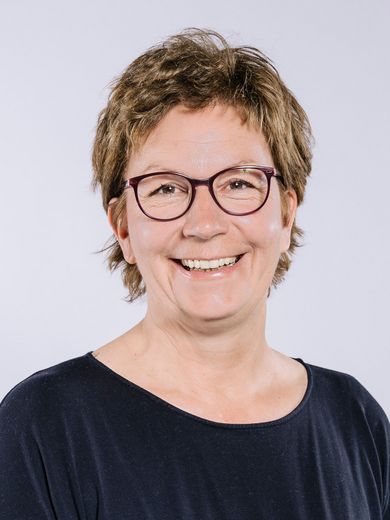Every year, some 5.6 million metric tons of plastic packaging winds up in household waste in Germany after being used just once. So far, less than a third of it can be recycled. Working in partnership with Hochschule Bremen — City University of Applied Sciences, the Fraunhofer Institute for Manufacturing Technology and Advanced Materials IFAM aims to transform this waste into high-quality 3D-printed products. They will be presenting one project at the Hannover Messe from 31 March to 4 April 2025.
Volumes of plastic waste are rising, having approximately tripled across Germany over the past 30 years. Packaging waste in particular is a major contributor to this. Where German households produced 2.1 million metric tons of plastic waste in 1994, the figure had risen to 5.6 million by 2023. That makes it even more important to find ways to recycle these single-use products, most of which are based on crude oil.
“But it is much harder to recycle post-consumer waste than plastic residue left over from industrial production,” explains Dr. Silke Eckardt, a professor focusing on sustainable energy systems and resource efficiency at Hochschule Bremen - City University of Applied Sciences (HSB). After all, these materials are not only highly heterogeneous but generally also dirty. To close the production cycle nevertheless, HSB has teamed up with researchers at Fraunhofer IFAM to recycle even these tough-to-handle plastics from private households and then put them to use in additive manufacturing.
“Since the waste is supposed to be recycled for use in 3D printing, it has to meet very stringent requirements for aspects such as purity, shape and size,” explains Dr. Dirk Godlinski, a project manager in the Composite Technology working group at Fraunhofer IFAM.
To this end, the polypropylene output from a sorting plant for packaging waste was used in a feasibility study conducted by HSB and Fraunhofer IFAM.
To ensure sufficient purity, Eckardt and her team processed the sorting plant output further: At the university’s Laboratories for Circular Economy, they ground up the plastic, washed it and separated undesired material from the main stream using a floatsink-separation. The team used near-infrared technology to identify residual foreign plastics and removed them subsequently. After that, the researchers ground down the material again until it had reached the grain size required for compounding and dried it. This method achieved purity levels of more than 99.8 percent.
Then Fraunhofer IFAM took over: “In the project, we produced homogeneous polypropylene from the prepared waste,” Godlinski says. “This is a versatile form of plastic that is durable, resistant to breaking and relatively flexible.”
The research scientist and his team produced a solid plastic strand. First, they processed the flakes of recycled polypropylene in an industrial extruder at Fraunhofer IFAM. The material was combined there, mixed using different extruder screw geometries, then melted at temperatures greater than 200 degrees Celsius and extruded.
“The expertise consists in precisely adjusting the various mechanical screws, temperatures, pressures and speeds along the production process so the final product is homogeneous polypropylene,” Godlinski explains. For further processing in 3D printing, for example, the strand must be round and consistent in diameter over its entire length, with a smooth surface.
The researchers succeeded in this: The gray plastic strand, about two millimeters thick, was able to be used directly as a filament in a commercial 3D printer. By now, Godlinski and his team have successfully printed their first components, including caps.
This marks the conclusion of the feasibility study by HSB and Fraunhofer IFAM. The researchers are now optimizing the production process. Ideas for follow-up projects have already been floated. Godlinski notes that plastics can be further refined, for example, by introducing additives such as glass fibers during compounding. This makes it possible to produce even very high-quality components for use in fields such as aviation and the automotive industry.
Legal stipulations are also pushing increased demand for recycled materials: Under the EU Packaging and Packaging Waste Regulation (PPWR), packaging must be composed of anywhere from 10 to 35 percent recycled materials by 2030, depending on the type of plastic and the product, excluding medical devices and pharmaceutical products. The requirement for 2035 is 25 to 65 percent recycled materials.
“Increasing the demand for recycled materials is important,” Eckardt says with conviction. “Especially with regard to climate change, we need to think about resource efficiency. The circular economy is becoming more and more important.” Godlinski agrees: “The more waste we reuse and recycle, the more energy and resources we can conserve.”

Prof. Dr.-Ing. Silke Eckardt
Vice President for Research and Transfer | Sustainable Energy Supply and Resource Efficiency
+49 421 5905 2377
Email